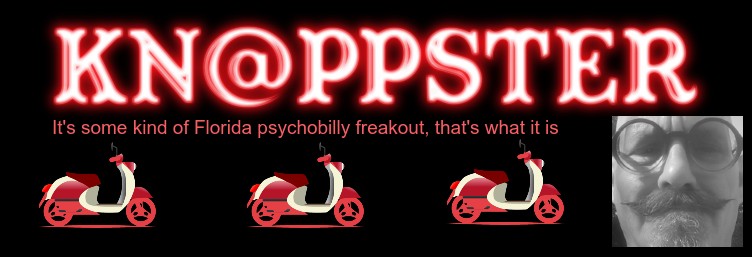Brian Holtz's is the argument that "public goods" and "the free rider problem" trump the basic standard of civilized conduct -- non-coercion.
He unpacks it thusly:
Excludability is the ability of producers to detect and prevent uncompensating consumption of their products. Rivalry is the inability of multiple consumers to consume the same good. A public good is defined as a non-rival non-excludable good, such as national defense. Because public goods are not excludable, they get under-produced. The pricing system cannot force consumers to reveal their demand for purely non-excludable goods, and so cannot force producers to meet that demand.
This, per Holtz (and as originally argued by Samuelson), leads to a "free rider" problem (since non-excludability means that one can consume the good without paying for it), and thus to "market failure," justifying the classification of whatever it is we're talking about as a "public good" and, if Mr. Holtz deems it a necessary good, excusing the use of coercive taxation to make everyone -- those who want it and are willing to pay for it, those who want it and aren't willing to pay for it, and those who just don't want it -- cough up "their fair share."
Except, of course, that that's bullshit. Here's why:
- "Under-" (or "over-") production is a subjective evaluation. "Under-production" means "not as much of this stuff is being produced as Brian Holtz believes needs to be produced."
Note that I'm stipulating to Mr. Holtz's honesty here -- he's not just trying to get everyone else to pay for something he alone wants, but rather something he genuinely believes everyone needs and is willing to pay "his fair share" of himself. But that's a subjective evaluation, too. Brian Holtz thinks that everyone needs "national defense." Maybe I think that everyone needs "on-call Swedish massage." I have yet to see the stone tablets upon which the "everyone needsness" of either hath been divinely chiseled.
- There are all kinds of non-rivalrous, non-excludable goods. Take a billboard advertisement, for example. It's non-excludable and non-rivalrous -- the company (Store X) that puts out the ad can't stop anyone passing by from looking at it (nor would they want to!); and no matter how many people look at it, there's no less of it to look at. If the billboard shows a nice pair of tennis shoes, and some of the people who look at it go buy those shoes at Store Y instead of Store X, that makes Store Y a "free rider" -- they got the benefit of the billboard's existence, but they didn't pay for its production or deployment. Does Mr. Holtz propose that tennis shoe billboard advertisements be deemed a "public good" and that Stores A through Z (or maybe all tennis shoe manufacturers, or all potential customers) be taxed to provide for production of said advertisements?
Non-excludability and non-rivalrousness do indeed exist, but they aren't magic wands that make coercion to subsidize production of a good necessary or justifiable. The very minimum additional factors required would be objective criteria for establishing a) what is needed and b) how much of it is needed. Absent those two factors, non-excludability and non-rivalrousness are nothing more than overhead production costs that Mr. Holtz doesn't want to pay all by himself. Which is fine -- until he decides to make everyone else go in with him on them at gunpoint.

No comments:
Post a Comment